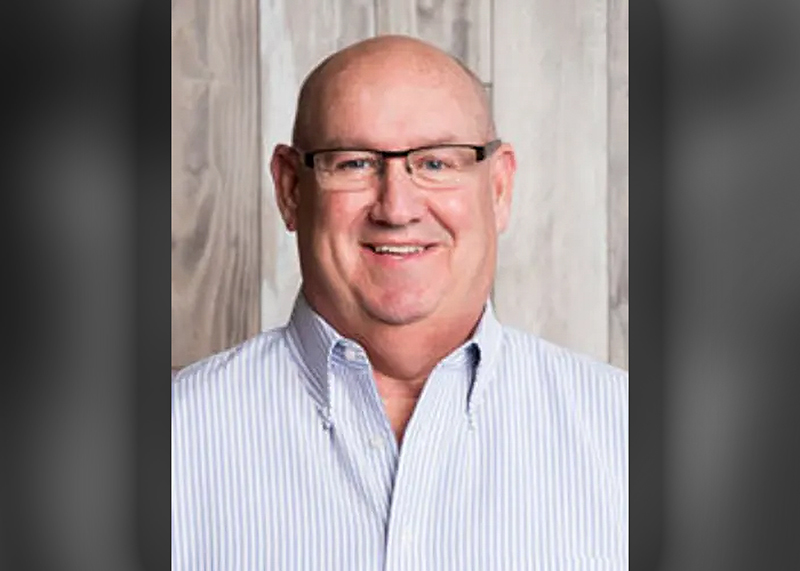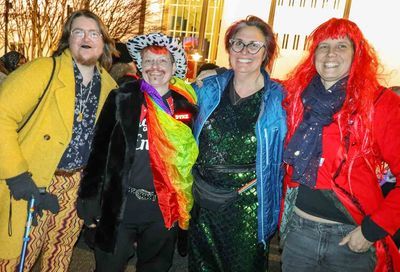Trans individuals subjected to conversion therapy more at risk of psychological distress, study finds
Trans individuals subjected to conversion therapy as children are four times more likely to attempt suicide

Transgender people subjected to conversion therapy — particularly as children — are at higher risk of experiencing psychological distress than their transgender peers, according to a new study.
The study, published in JAMA Psychiatry, a monthly peer-reviewed journal published by the American Medical Association, analyzed more than 27,000 transgender adults across the United States, U.S. territories, and U.S. military bases, roughly evenly divided between those assigned male at birth and those assigned female at birth.
Those who said they had undergone conversion therapy at any point during their lifetimes were twice as likely to have attempted suicide than those not subjected to gender identity change efforts. Those subjected to conversion therapy as children were four times more likely to have attempted suicide.
The study was authored by researchers at The Fenway Institute, Massachusetts General Hospital, and McLean Hospital (in collaboration with Harvard Medical School), and is believed to be the first study to show an association between exposure to gender identity conversion efforts and adverse mental health outcomes for its participants as adults.
It builds on previous work published last month by the same researchers that found that 13.5% of transgender individuals had been subjected to attempts to change their gender identity at the hands of therapists, counselors, or religious advisors.
Dr. Alex Keuroghlian, a senior author of the study and the director of National LGBT Health Education Center at The Fenway Institute and the Massachusetts General Hospital Psychiatry Gender Identity Program, notes that 41% of transgender individuals have attempted suicide, according to the 2015 U.S. Transgender Survey. But this is the first study to find that any attempt at conversion therapy, whether as a child or an adult, poses significant psychological harm to trans individuals.
“Often people assume that the damaging effects somehow are associated with the religious nature of the effort,” Keuroghlian told The Washington Post. “It’s a major finding that it’s not the religious component that’s dangerous in our results — it’s any effort to change someone’s gender identity from transgender to cisgender.”
The study supports the view held by most major medical and mental health organizations, including the American Psychiatric Association, the American Medical Association, the American Academy of Child and Adolescent Psychiatry, and the American Academy of Pediatrics, that gender identity conversion therapy is ineffective and does more psychological harm than good, putting students at increased risk of negative outcomes, including suicidal ideation.
“One of the most alarming findings from this study was the association between exposure to gender identity conversion efforts during childhood and a four-fold increased odds of lifetime suicide attempts,” Dr. Jack Turban, the lead author and a resident physician in psychiatry at Massachusetts General Hospital and McLean Hospital, said in a statement. “This is important because some experts continue to advocate for gender identity conversion efforts for young children. We hope our findings contribute to ongoing legislative efforts to ban gender identity conversion efforts.”
Clinton Anderson, the director of the Office on Sexual Orientation and Gender Diversity at the American Psychological Association, said the study has limits because it does not prove causality.
He told the Post that the results suggesting people who underwent conversion therapy as children were at higher risk of psychological distress may be misleading, “because those who report having received treatment for gender identity by a professional before age 10 are likely to be different from those who receive gender identity treatment later.”
“Additional research would help us to better understand the natural course of gender identity development for both cisgender and transgender people across different developmental stages and the impact of different reactions from parents, family, friends, and professionals, some of which we know are negative and rejecting, while others are more positive and accepting,” Anderson said.
Read more:
New York City will repeal its conversion therapy ban to avoid Supreme Court challenge
Real Housewives stars apologize after saying transgender model has a “body like a guy”
Unsteady Cabin: Log Cabin Republicans endorse Trump, but LGBTQ Republicans are split
Support Metro Weekly’s Journalism
These are challenging times for news organizations. And yet it’s crucial we stay active and provide vital resources and information to both our local readers and the world. So won’t you please take a moment and consider supporting Metro Weekly with a membership? For as little as $5 a month, you can help ensure Metro Weekly magazine and MetroWeekly.com remain free, viable resources as we provide the best, most diverse, culturally-resonant LGBTQ coverage in both the D.C. region and around the world. Memberships come with exclusive perks and discounts, your own personal digital delivery of each week’s magazine (and an archive), access to our Member's Lounge when it launches this fall, and exclusive members-only items like Metro Weekly Membership Mugs and Tote Bags! Check out all our membership levels here and please join us today!























You must be logged in to post a comment.